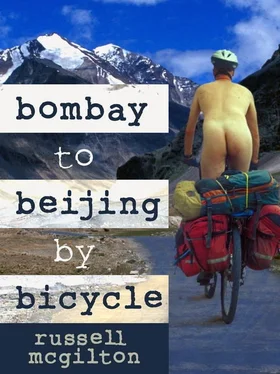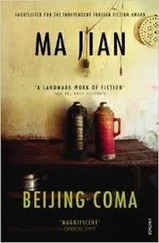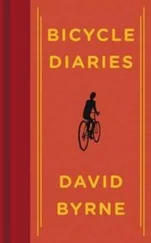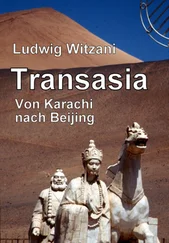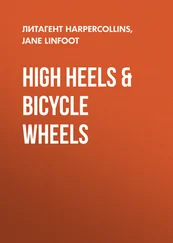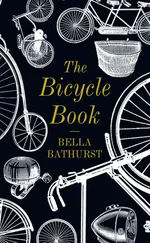Like the vultures, the Parsi community was also endangered. Only 90 000 Parsis live in India today, and their numbers are continuing to drop due to intermarriage and a historical disadvantage. When the Parsis’ ancestors – known then as Persians – first arrived in India sometime around the tenth century, the Hindu ruler of Gujarat allowed them to stay, on the condition that they were not allowed to convert his subjects to their religion, Zoroastrianism. Even now, the Hindu community regards the Parsis as outsiders.
I thanked Benjamin for his time, got back on my bike and followed the road down the winding hill. It wasn’t long before I was hopelessly lost. I looked to the sinking sun to get my bearings.
I figured that if I headed south I would eventually end up in Colaba’s narrow peninsula and back at my hotel. Dodging an elephant, numerous potholes and wallahs pushing a large barrow stacked with bricks, I found myself in a race with two teenagers – one with particularly large glasses and a vibrant red fez – on bicycles. Trying to gain a few lengths on these boys, I swung out of the traffic, overtook a taxi and found myself in a suicidal collision with an oncoming truck. I slammed on my brakes, causing the back wheel to lock me into a terrifying slide that ended when I smashed into the door of a taxi. I expected the driver to erupt from the taxi in a rage but he merely wobbled his head when I apologised.
It was peak hour and the streets were choked with traffic and accompanied by insane, erratic beeping and blaring. I battled through it, coughing and sputtering through the exhaust until the traffic eased and my lungs began to clear.
When I got back to the hotel I hauled the bike over my shoulder, trudged up three flights of stairs, threw the bike against the wall, then went to the toilet and threw up. I then washed my face, flopped on the bed and passed out, overcome with Mumbai’s polluted breath.
I awoke the next morning to the phone ringing. I picked it up.
‘Omelette jam?’
On my past travels I have noticed how residents of each country have a different way of going to the cinema. In Thailand, patrons stand with hands on hearts when the King’s picture is screened, while in Zimbabwe, locals face their country’s flag and sing their national anthem. But in India… people run!
Swarms of people were squashed up against the padlocked steel gate of the Regal Cinema, an Art Deco building crumbling silently in the night. When the gate opened it was on for young and old and I felt the crush of bodies push past. Over ten million people across India go to the cinema in a single day, and at this moment it felt like they had all decided to come to this one. I shrank up against the wall, spilling my soapy tea, while old ladies jostled and elbowed their way as if to reclaim a dowry from a recalcitrant daughter-in-law. I didn’t understand the rush; 50 rupees got me a reserved seat, didn’t it? I soon realised my mistake: the seat numbers had worn off over the years of attentive neglect but no one had bothered to mention this to management, who were happily giving out numbered tickets and dutifully directing patrons to their seats.
Inside, chaos led the way. Families were jumping, running and throwing themselves into chairs, then valiantly fighting off newcomers. One man was barking directions, pointing at vacant seats and waving what appeared to be his immediate family, his extended family and his extended-extended family through to fill the row. Or maybe there were just a lot of people following one guy; it was hard to say.
Up in the stalls, I jumped into the nearest seat and languished in my dilapidated comfort until a curt-bordering-on-rude voice said, ‘This is not your seat.’
I looked up, prepared to sneer at any seat-bumpers, but instead it was the usher.
‘How do you know? There are no seat numbers.’
The usher ignored my protests and led me upstairs – right up the back and next to a gang of jabbering youths.
‘How do you know this is the right seat?’
‘It is on your ticket!’ he said as if I were a blind idiot.
‘But there’s no seat number on the seat!’ I protested but he was gone, moving people who were, to their surprise, in the wrong seat.
A family of five stood in confusion at my row. Another usher came up to me and demanded to see my ticket. He flicked his torch on it.
‘Your seat is not correct.’
‘But—’
‘No, this is the wrong number to the seat.’
‘What?’
‘The ticket is correct but the seat is not. Come with me.’
He deposited me on the far left of the cinema behind a pillar.
‘This is your correct seat.’
‘Are you sure about that? There are no seat numbers here. How can you give me the right seat if there are no numbers? Hmm?’
His body rocked like a wave.
‘It is correct,’ he said and floated away into the darkness, delivering people to their seats with an unnerving self-assuredness.
The trailers began. Screeching, distorted noise hurt my ears as a community film about residents not rubbishing their neighbourhood clunked across the screen. We saw a man about to spit, another about to urinate, girls throwing rubbish on a beach, and a housewife liberally turfing scraps out of her house onto the street. The solution to this terrible depravity was to put the rubbish in a bin, which in India seemed to be like trying to find a vindaloo curry that wasn’t hot.
I was here to see Raju Chacha , a typical Bollywood film. As a genre, Bollywood created itself out of other film styles; this genre is known as the ‘ masala format’ (named after a culinary term for a mix of several flavours in a single dish). Everything is thrown in – musicals, comedy, horror, action, romance, cartoons and even science fiction. All except pornography. In fact, the most you’ll ever see of that kind of business is a wet, gyrating sari or a naked shoulder. You’re lucky if there’s even a kiss. In fact, the leading actors seem to be pulled out of shot by stagehands just as their moist lips are about to daringly meet.
Raju Chacha ’s claim to fame was that it was made with one of the biggest budgets in Bollywood history: 35 crore , the equivalent of $US7.22 million. Like Hollywood films, however, a bigger budget didn’t necessarily mean a better script. I sat trying to piece together threads of the story amid its tiresome slapstick but am still to this day not entirely sure what I saw.
I vaguely remember something about a rich architect widower and his three brattish kids living in a garish pink-and-gold mansion with a rainbow-gravel circular driveway and Graceland-style guitar steel gate.
The plot was hatched along the lines of ‘evil relatives plan to kill father and take over his millions’. One minute we were watching the father (who had an uncanny resemblance to the TV host Daryl Somers) dance around the house, and then, in the next second he had suddenly morphed into a Lion King cartoon.
But what really surprised about this experience was, unlike going to the movies at home, where even the slightest crackle of Maltesers received hails of sharp abuse, in India it was entirely the opposite. The audience yabbered loudly at each other, got up to stretch, went outside, banged doors noisily, sang to themselves or yawned. This was refreshing and if I knew what the hell was going on I would’ve joined in, being a loud person myself.
Afterwards, I hailed a taxi. As it sped through the empty, dark streets, Mumbai seemed to breathe a sigh of relief, as did its poorer inhabitants who slept where they could – on pavements, roundabouts, or on the bonnets of their taxis. Some were still working, like the wallahs clearing rubbish onto small carts pulled by donkeys. I felt a twinge of guilt for going back to a comfortable hotel.
Читать дальше
